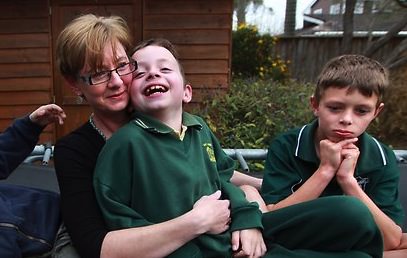Study suggests fewer children would get ASD diagnosis; Autism Speaks investigating what happens when diagnosis lost or changed to SCD
A study by the Centers for Disease Control and Prevention (CDC) suggests that fewer children would receive a diagnosis of autism under new criteria for the disorder. The new criteria came into use with the publication of the 5th edition of the Diagnostic and Statistical Manual of Mental Disorders (DSM-5) last May.
The CDC report appears today in JAMA Psychiatry. It suggests that the DSM-5 criteria could decrease the current estimated prevalence of autism from 1 in 88 to 1 in 100 children. This appears to support widespread parent concern that the new criteria would exclude some children who would benefit from autism services.
Earlier research suggested that some children who would have received a diagnosis of PDD-NOS (pervasive developmental disorder not otherwise specified) under the previous DSM-IV criteria for autism would now receive a diagnosis of social communication disorder (SCD). As yet, the newly defined disorder has no guidelines for treatment.
An online survey by Autism Speaks has already drawn accounts of children losing autism services after their ASD diagnosis was changed to SCD.
“This raises serious concerns,” says Autism Speaks Chief Science Officer Rob Ring. “Autism Speaks advocates for all individuals who would benefit from autism-related services.” (Learn more about differences between DSM-IV and DSM-5 criteria for autism here.)
Reduced Estimate with Caveats
In their study, the CDC investigators applied DSM-5 criteria for ASD to written notes from the medical and educational records of children receiving autism services in 2008. At the time the records were written, the older DSM-IV criteria for autism were in use.
The investigators didn’t determine whether any of the children would qualify for the new diagnosis of social communication disorder. This wasn’t possible, they write, because the symptoms recorded in the old records didn’t reflect those being used to diagnose SCD.
The researchers likewise acknowledge that the service records they reviewed lacked a clear focus on symptoms emphasized in the DSM-5. As such, their analysis likely missed some children who would have received an autism diagnosis if they were evaluated by a specialist using the new criteria today.
Autism Speaks Study Will Clarify Issues
Autism Speaks has funded a study that addresses these uncertainties. Its investigators used both DSM-IV and DSM-5 criteria to assess detailed in-person diagnostic evaluations of a large group of school children. Theri assessment included evaluation for SCD. The results have been accepted by a major scientific journal and are expected to be published within the month. (Watch for them in our science news column here.)
Meanwhile, Autism Speaks continues to receive worrisome reports of lost autism diagnoses and services through its online DSM-5 survey. These include accounts of children previously diagnosed with autism who lost services after their schools or health insurers requested that they be re-evaluated with the new criteria.
“This should not be happening,” says child psychologist Lauren Elder, Autism Speaks assistant director for dissemination science. “The DSM-5 committee clearly stated that no individual previously diagnosed with autism should be required to be re-evaluated under the new criteria. Yet we’re hearing that some insurance companies and school districts are requesting these re-evaluations.”
Press Releases

 Canada Journal – News of the World Articles and videos to bring you the biggest Canadian news stories from across the country every day
Canada Journal – News of the World Articles and videos to bring you the biggest Canadian news stories from across the country every day

